2023 EY’s Global Consumer Health Survey across six countries found what consumers value most about healthcare. In the 21st century, it has already become obvious to everyone that the future of medicine without IT, gadgets, the Internet and technological innovations is impossible.
Access to health
A survey of 6,000 consumers in the US, Australia, Canada, Ireland, England and Germany who had contact with the healthcare system in the previous 12 months found that consumers continue to prefer personal care to virtual one. But at the same time, they are not against remote assistance when it comes to their own health.
This means that the virtual experience must be constantly improved to serve different consumer segments.
Consumers highly value access to prompt medical care. In their opinion, the ease of use of health services, access and improvement in the health of the population are the main factors in the effectiveness of health care. While access to health care was rated below average in the six countries surveyed, opportunities such as virtual consultations and online monitoring were viewed positively by consumers.
So how do you give health consumers the access and experience they value most? From the field of healthcare organization, this issue “migrated” to the IT industry, which has become a powerful driver for the development of the entire medical industry in the first quarter of the 21st century.
Health 2023
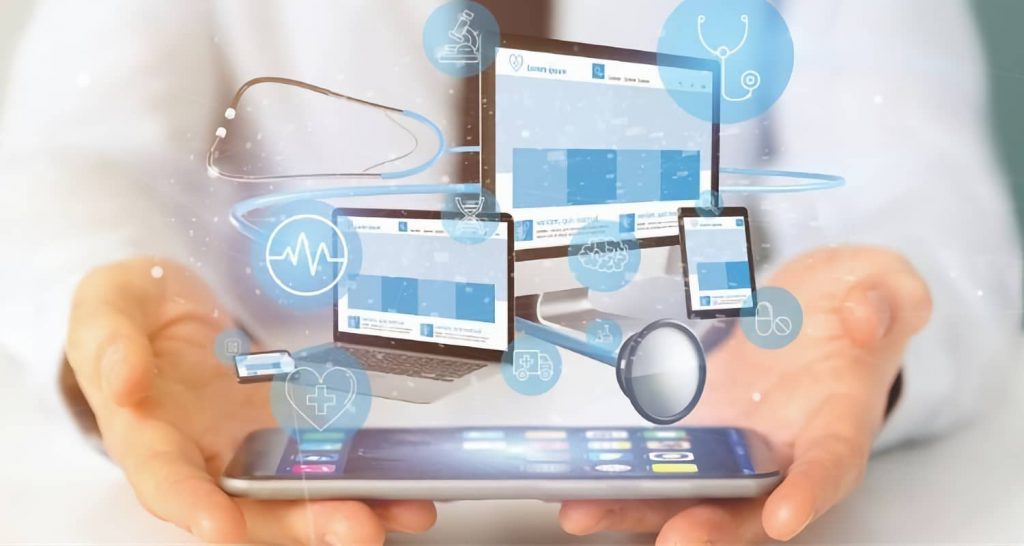
Health care has become an integral part of our modern life. From healthy eating and exercise to meditation and sleep, people are looking for effective methods to improve their well-being. Modern technologies come to their aid, which bring a unique experience to this process.
Health system performance is rated low across countries. Only 37% of global consumers said their healthcare system offers good outcomes, very good or excellent access to health care (49% of those surveyed say their healthcare system performs better than average).
Many said that their healthcare system performs well in critical areas such as keeping up to date with the latest treatments and innovations. All countries are implementing the latest medical treatments and innovations (48%) and optimizing the overall healthcare experience regardless of the location or personal circumstances of the sick person (46%). This is perceived as a strength of health systems.
Given that consumers prioritize access to healthcare when it comes to cost, only 37% of global consumers in the survey said their healthcare system offers good outcomes, very good or excellent access to healthcare.
So what do consumers think drives health system performance?
For consumers, there are three factors:
- Ease of use of medical services
- Access to care
- Improving the health of the community
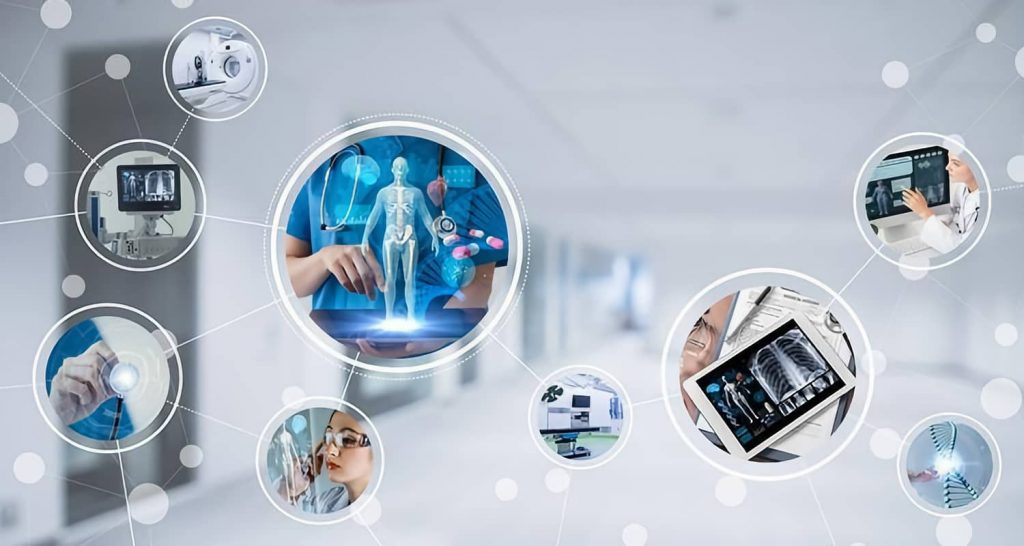
The modern paradigm of healthcare development provides that both diagnostics and health monitoring, with an assessment of the main parameters of life support, are quite a lifting task when using modern IT technologies. Moreover, consumers have nothing against it.
Thus, an analysis of consumer responses to an EY survey revealed six consumer segments with varying degrees of openness to modern technologies and their participation in their own health, albeit partial.
By this, we mean that consumers still prefer in-person medical care, but are quite comfortable with virtual care as well. Such as, for example, online sharing of personal health data and virtual consultations.
The latter were generally viewed more positively when it came to the exchange of operational monitoring data. While 77% of respondents prefer an in-person appointment with a specialist, 61% of respondents are willing to consider a virtual environment to discuss the results of their monitoring tests.
Virtual consultations play a role, especially when someone does not want to wait for an in-person appointment (34%), but also for the convenience of the patient (31%). In the six countries surveyed, more than two in five respondents (44%) would consider a virtual consultation in the following situations:
- Renew prescription — 67%
- Discuss test results — 61%
- Save time — 57%
- For a minor illness — 56%
Sharing health information
In the EY survey, consumers also indicated openness to data sharing. Overall, three-quarters (73%) of respondents would agree to have their health information automatically transmitted electronically to the various locations where they receive care. But they have made it clear that they want to know up front how this personal health information is protected and used (79% agree/strongly agree).
What are consumers willing to share?
- Biometric data (such as blood pressure or blood glucose levels) — 77%
- Information about nutrition — 72%
- Lifestyle (for example, smoking or drinking) – 71%
- Genetic information — 63%
As for the profile of those who are more open to exchange, among them are those who have a chronic disease (77%) and whose age is 65 years and over (76%). These categories are more likely to agree to the exchange of information.
People are more likely to share information for research purposes (65% agree), as opposed to helping pharmaceutical companies and medical device manufacturers improve the performance of their products (50%).
Intelligent Medicine
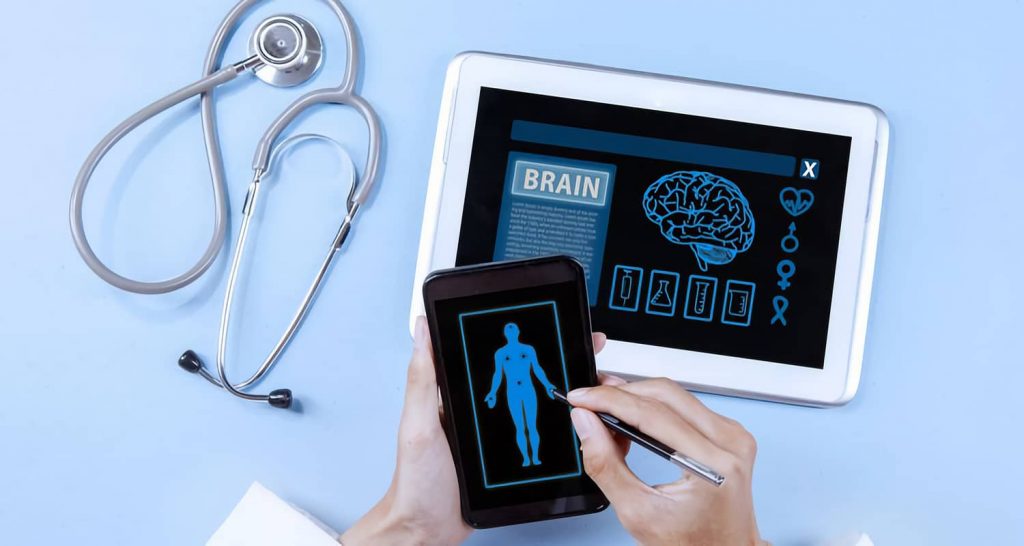
The smart medical devices market is expected to reach $24.46 billion by 2025 at a CAGR of 24.0%. Let’s look at how IT solutions and gadgets help consumers take care of their health, and what experience in this area they value above all else.
Fitness trackers
Fitness trackers and smart watches have long been an integral part of the daily life of active people. Devices such as the Apple Watch, Fitbit Charge 4, Xiaomi Mi Band and dozens of others help track physical activity, heart rate, sleep quality and even stress levels.
With apps and analytics available on smartphones, users can analyze their data and set new goals for themselves. Consumers appreciate the ease of use and the ability to customize these gadgets to suit their needs.
Apps for healthy eating
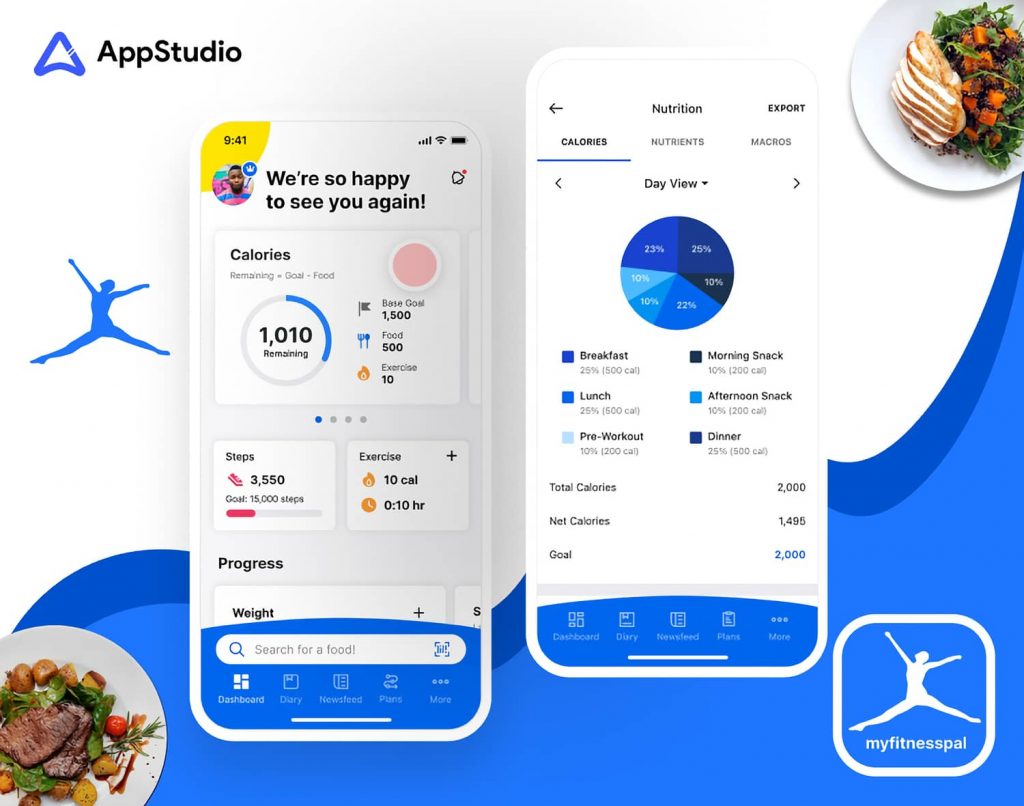
Maintaining a healthy diet is one of the top priorities for health conscious people. Here, developers also do not stand aside.
There are a huge number of applications such as MyFitnessPal, Lifesum, Runtastic or MyNetDiary provide huge food databases with information about their nutritional value. It allows users to easily track their calorie, protein, fat, and carbohydrate intake, as well as set personalized goals for healthy eating.
In addition, such solutions immediately offer personalized recipes and nutritional advice, making it easy to make informed decisions about food and diets, depending on the goals of the person and their physical parameters. Most of all, modern consumers value convenience and visibility in such applications.
Telemedicine
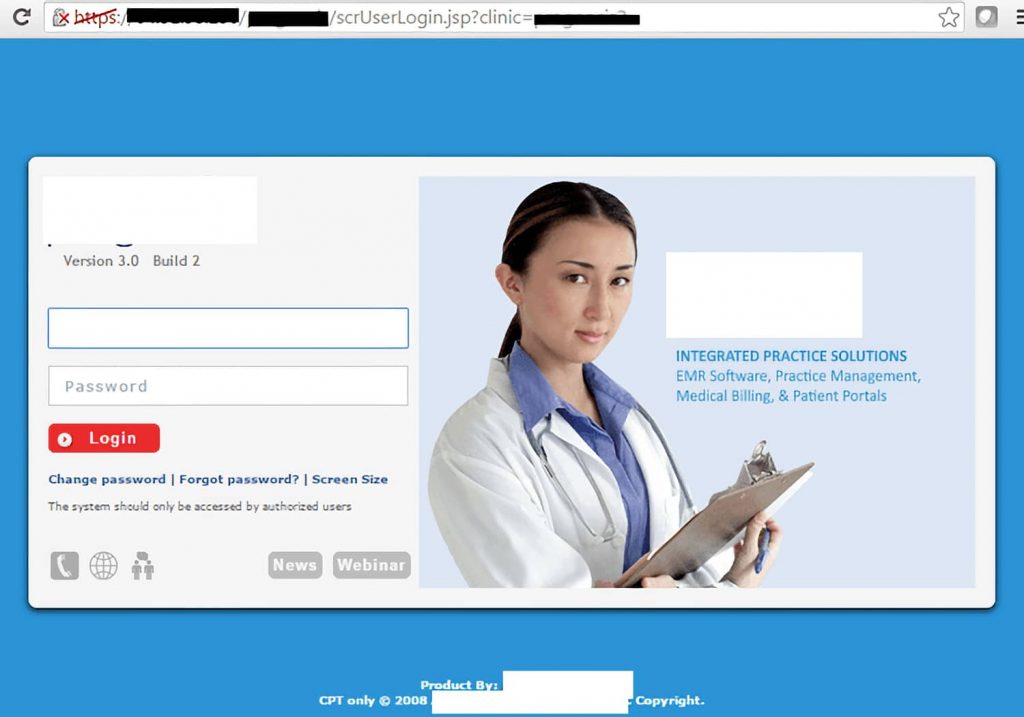
The coronavirus pandemic has accelerated the development of telemedicine. Now patients can communicate with doctors via video calls, receive consultations and prescriptions online. Telemedicine platforms have become especially valuable for people living in remote regions or with limited mobility.
Users note that such an experience provided by Teladoc Health is one of the leading platforms for telemedicine consultations, which, in addition to the ability to communicate with doctors and specialists via video calls, also allows you to receive medical advice and prescriptions online, which makes medical care more accessible and convenient, saves time and simplifies access to qualified medical services.
Healthy sleep trend
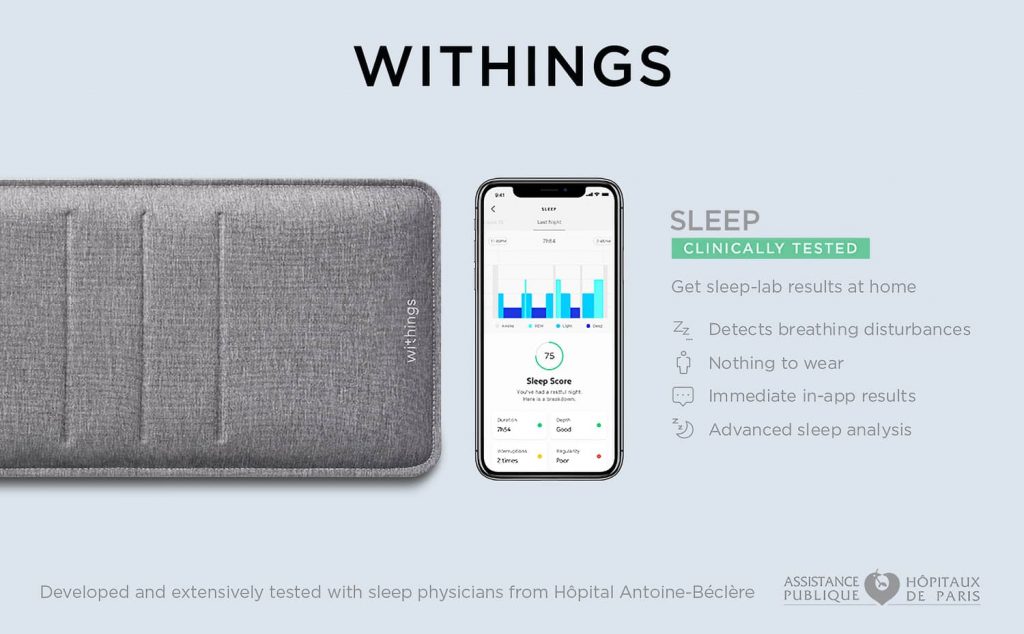
Taking care of the quality of sleep has become one of the priorities for a healthy lifestyle. Modern gadgets for sleep help track sleep patterns, analyze its depth and quality. For example, devices such as Withings Sleep Analyzer, which can do all this.
Some devices also offer white noise or nature sounds for a comfortable sleep environment. Consumers appreciate the reliability and accuracy of measurements in such gadgets, as well as the ability to synchronize with other IT devices.
Responsibility and confidentiality
Considering the health of the population without detaching from personal responsibility is rather meaningless. Respondents believe, in general, that the responsibility for good health lies with the people themselves (44%). Every seventh (13%) places this responsibility on medical experts. Curiously, those who believe medical experts are responsible for overall good health tend to be more likely to have poor health, chronic illness, and lower incomes.
55% of respondents are more active in their health and regularly undergo medical examinations. Those who say they are in good, very good or excellent health (58%) were more likely to have consulted a healthcare professional in the past 12 months for a routine checkup.
Going forward, these active people are more likely to consider monitoring their health using technologies such as genetic testing (70% vs. 68% overall) or wearable sensors (66% vs. 64% overall).
When it comes to using IT solutions and gadgets for health care, one of the most important aspects that attracts close attention is the issue of privacy. It is the safety of personal medical data of patients today that is the important aspect that creates trusting relationships with users responsible for their health, stimulating the development of innovations. Four out of five EY global survey respondents rated patient confidentiality as good, very good or excellent.
Important drivers for minimizing the risks of proper data protection are legal compliance and adherence to ethical principles. Compliance with regulations governing the collection, storage and use of medical data is mandatory for all industry players. Nearly all countries and regions have adopted similar legal privacy standards.
Ethics aims to be transparent about data collection and give the user control over their data. For responsible brands, this is the very ethical principle by which they improve their reputation and increase user confidence in their products and services.
Below the line

Modern consumers are striving to take active care of their health with the help of smart technologies, gadgets and virtual environments that involve remote involvement of specialists in cases of emergency health situations.
Gadgets and the Internet allow consumers to lead a conscious lifestyle and take an active part in caring for their well-being. Ease of use, personalization and convenience are the main characteristics that they value in health IT solutions.
With a fairly large part of the general population positive about online monitoring and virtual care, this market segment is expected to continue to grow and develop, bringing even more innovative opportunities for health care.
